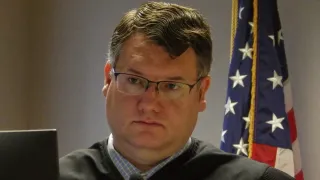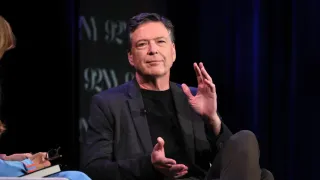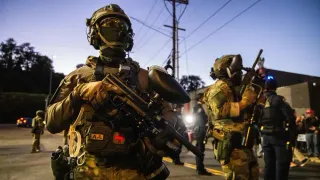
7 hours ago
Zach Bryan Criticizes ICE in New Song, Reiterates Stance After White House Response
READ TIME: 3 MIN.
Country singer-songwriter Zach Bryan, known for his candid storytelling and emotionally resonant lyrics, has become the focus of national debate after previewing a new song critical of federal immigration enforcement. The controversy erupted when Bryan shared a snippet on Instagram featuring pointed references to Immigration and Customs Enforcement (ICE) raids and their impact on families and communities. The lyrics, “ICE is gonna come bust down your door / Try to build a house, no bills no more, well I got a telephone / Kids are all scared and all alone,” quickly went viral, drawing both praise and backlash across social media platforms .
The previewed song, which has yet to see a full release, immediately divided Bryan’s fan base. Prominent supporters of stricter immigration enforcement and several conservative commentators criticized the artist, accusing him of undermining law enforcement and aligning with progressive immigration advocates. Conversely, many fans and social justice advocates applauded Bryan’s willingness to speak out against what they see as inhumane treatment of immigrants, particularly the trauma experienced by children during ICE raids .
Social media quickly became a battleground, with hashtags related to Bryan’s name and “ICE” trending as users debated the meaning and implications of his lyrics. Some listeners declared they would boycott his music, while others called him “brave” for using his platform to highlight the plight of immigrant families. Within the LGBTQ+ community, reactions included expressions of solidarity, recognizing the intersectional struggles faced by queer and transgender immigrants who are disproportionately vulnerable to immigration detention and deportation.
The growing controversy prompted a statement from the White House, which, though not naming Bryan directly, addressed the broader issue of public criticism of federal immigration enforcement. The administration reaffirmed its commitment to “humane and just enforcement of immigration law."
In the wake of the backlash, Bryan took to Instagram to clarify and reaffirm his stance. In a follow-up post, he wrote, “The last few months of my life, I’ve been scrutinized by more people than I ever thought possible. I feel like I’ve tried my hardest in so many ways and it’s so hard to see where my bearings even are anymore. Been falling off a cliff while trying to grow wings at the same time. I am SO proud to have served in a country where we can all speak freely and converse amongst each other without getting doxxed or accosted on the internet or worse; the violence and heartbreak we’ve faced in the last few months! God speed ol sons I’m out” .
Bryan’s statement emphasized his belief in free speech and his pride in American democracy, while also expressing exhaustion over the intense scrutiny he has faced. He did not retract or soften his criticism of ICE, instead doubling down on his commitment to use his platform to address difficult issues.
Federal immigration enforcement, particularly ICE raids, has long been a subject of national debate. Critics argue that such raids often result in the detention and deportation of individuals with deep community ties, including LGBTQ+ immigrants who may face unique dangers if returned to their countries of origin.
Artists and public figures have increasingly used their platforms to draw attention to these issues. Bryan’s song joins a growing body of cultural work that challenges the status quo, reflecting a broader shift in country music towards engagement with social justice themes.
As the controversy continues, observers note that Bryan’s actions reflect a broader trend towards activism within the music industry. Whether his new song will prompt meaningful policy discussion or simply deepen existing divides remains to be seen. For now, Zach Bryan’s decision to criticize ICE — and to stand by his words in the face of official pushback — has ensured that issues of immigration, free expression, and the rights of marginalized communities remain in the national spotlight.






